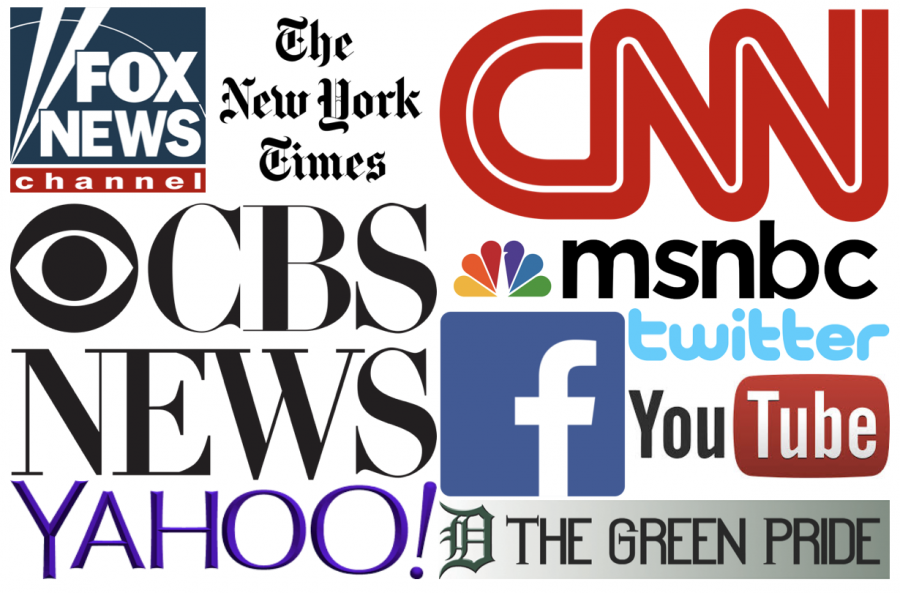The Scourge of Fake News
These common media sites and many others provide information and news for many people every day.
It is a fact that we live in a time of rampant information distribution. The problem that arises from having every question answered at your fingertips is when the answers are wrong, and that problem can have dangerous consequences, especially where entrenched political opponents are concerned.
Fake news, by which I mean the deliberate or accidental misreporting of a news story, is caused by two factors: First, sources of media don’t hold up their responsibility to provide correct information to their readers. Second, readers are told by people and groups that they support that the media is untrustworthy and thus will not believe real news stories. These two things create a vicious cycle where the public doesn’t know what to trust.
This prevalence of fake news in our daily lives, especially in social media feeds, affects the opinions we hold about key issues, and opinions based on this incorrect information can only serve to confuse any productive conversations about real issues, and that further divides us.
To me, the fact that fake news is even an issue is baffling. Sometimes, fake news is the result of the “telephone effect,” where certain aspects of a story are diluted or changed as they pass through each network, and that’s understandable. However, the new trend towards deliberately spreading misinformation to hurt an opponent, often political, is despicable.
However, I’m not advocating that you blame people or the greater, faceless “media” for having false sources. The division that is the result of mistrusting media is even worse than unproductive conversation, and people who promote mistrusting the media are the reason fake news is often able to flourish. But on the other hand, fake news has permeated almost every media network, and it’s hard to tell what’s true and what’s not, so most of the time you just have to assume what you’re being told is correct.
To make things worse, despite its negative effects on society, fake news is often presented enticingly, displaying high shock value stories with pictures that seem to corroborate those stories. In short, fake news is popular because it shows us what we want to see.
Dr. Daniel J. Levitin, a neuroscientist and New York Times bestselling author of A Field Guide to Lies: Critical Thinking in the Information Age talks about how our brains play into the popularity of fake news: “As soon as you hear a proposition, the creative brain in humans assumes for the moment that it’s true, and starts trying to find evidence.”
Sources of media, including The Green Pride, have the responsibility to provide correct information, but that’s only half the battle. A cooperative effort to ensure that facts that are widely disseminated are true, offhanded presidential tweets and otherwise, is the only way to really get rid of fake news.

Meet Sam Hubert. Sam has been a member of the Green Pride for 3 years and is excited to take the helm of the newspaper as an Editor-in-Chief this year....


